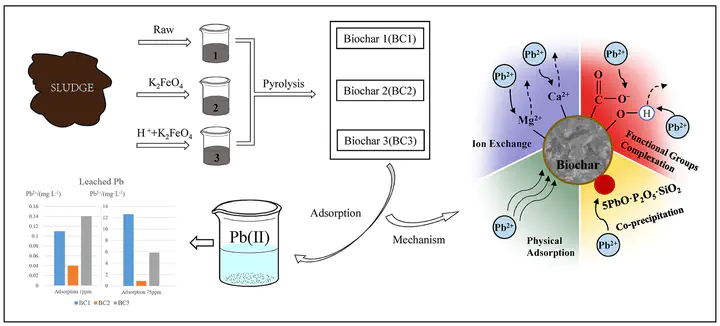Preparation of a novel sludge-derived biochar by K2FeO4 conditioning to enhance the removal of Pb2+

Abstract
In this study, three types of sludge-derived biochars (BC1, BC2 and BC3) were prepared by 1) original sludge, 2) sludge after K2FeO4 conditioning, and 3) sludge after acidification + K2FeO4 conditioning. The results show that the biochar prepared from the conditioned sludge has additional functional groups, and its Pb2+ removal effect is greatly enhanced. The concentration of Pb2+ in the effluent can be reduced to <0.06 μg/L. The original sludge-derived biochar can only remove at most 58.02% of Pb2+. The maximum adsorption capacity of BC3 is six times greater than that of BC1. The ion exchange effect of Ca2+ and Mg2+ on the biochar surface and the complexation of free -OH or -COOH functional groups lead to an excellent adsorption effect on Pb2+. The sludge-derived biochar prepared after the conditioning of K2FeO4 can realize efficient removal of Pb2+, providing new initiatives for subsequent sludge resource utilization.